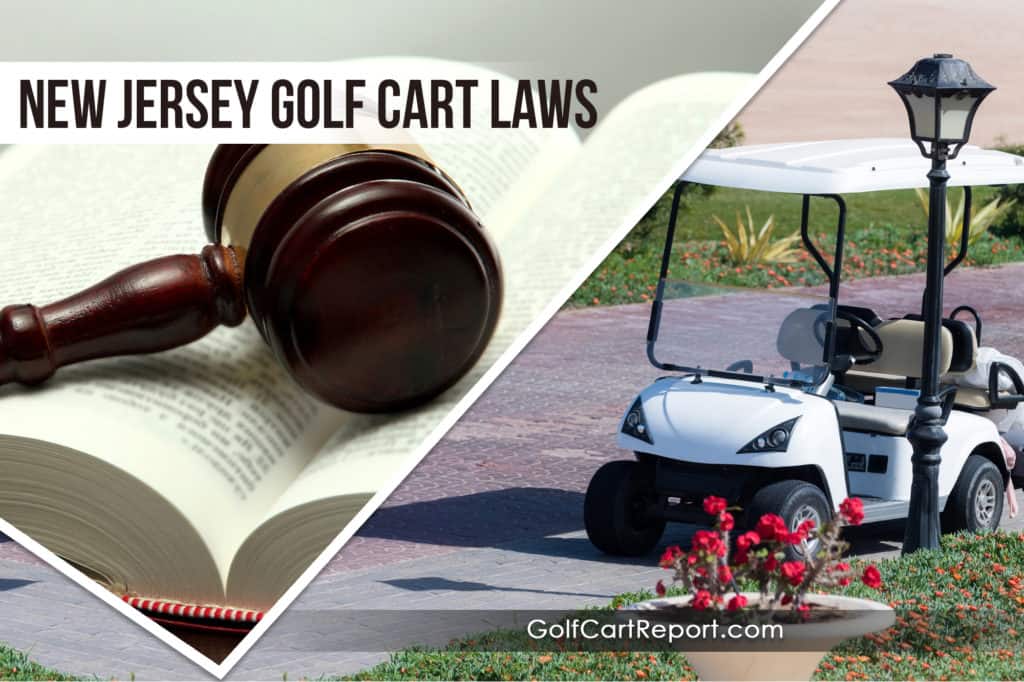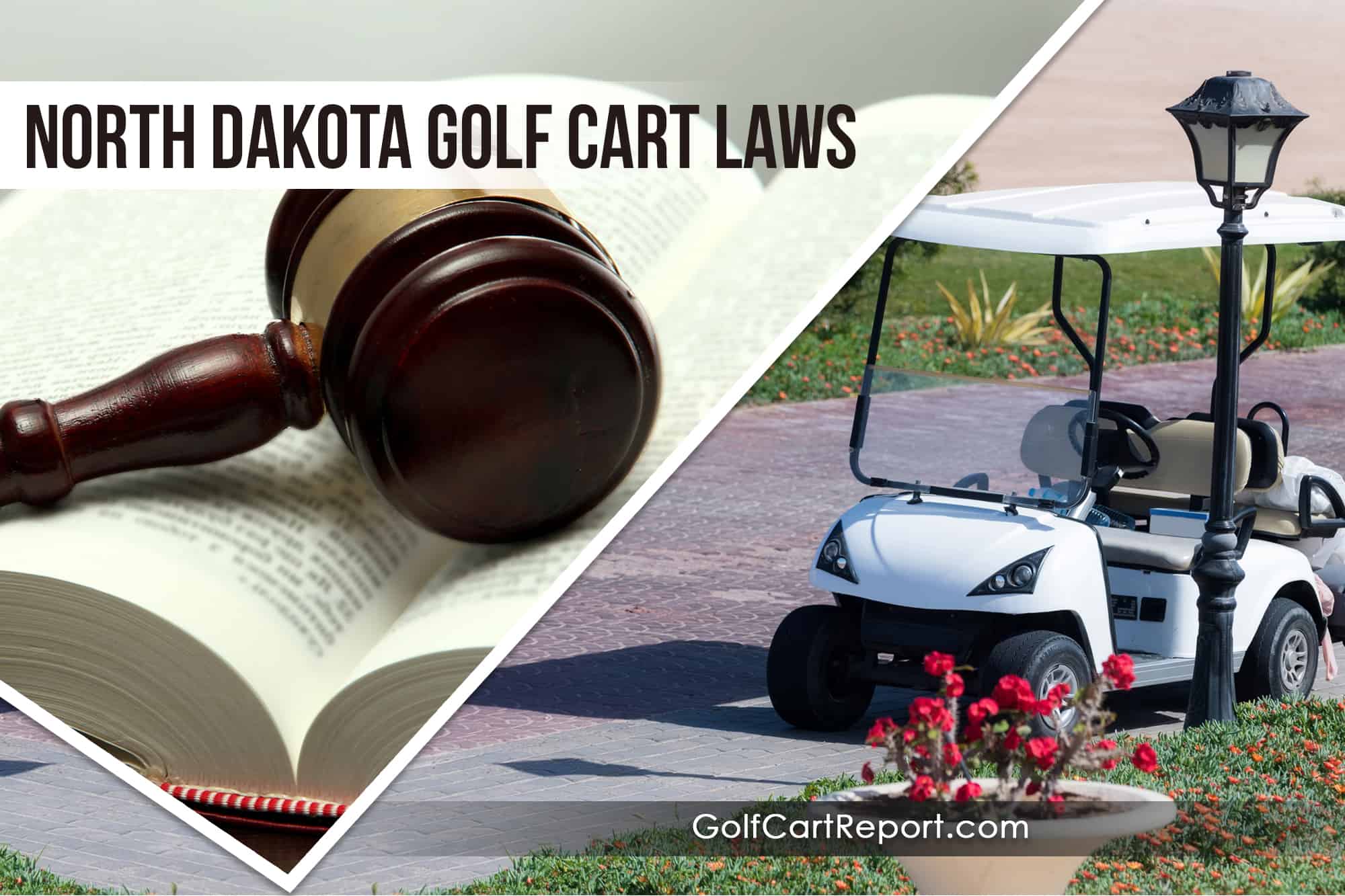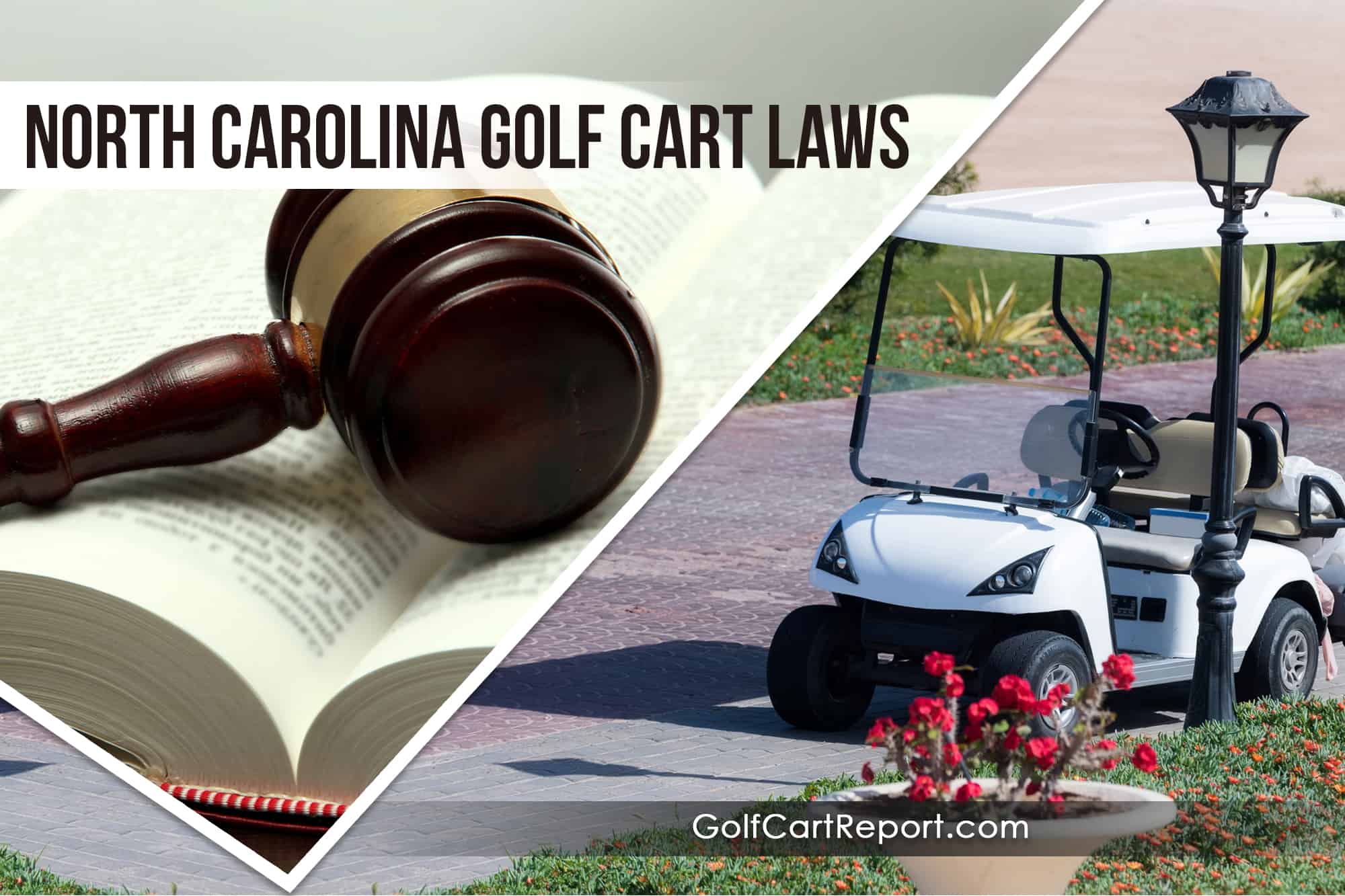New Jersey Golf Cart Laws
Like all states in the country, New Jersey has a large number of laws and regulations for golf carts and low-speed vehicles.
Following these rules ensures that you don’t run into any complications.
Just as importantly, it also helps to ensure that you don’t find yourself having to explain your golf cart use to annoyed officials who assumed you’d know better.
Federal Regulations are Important
Low-speed vehicles are those that are capable of speeds of up to 20 miles per hour but cannot reach 25 miles per hour.
The federal government asks that these vehicles possess various upgrades that make them safer to ride.
For example, you head headlights, front and rear turn signals, taillights, stoplights, reflex reflectors, parking brakes, rearview mirrors, windshields, seat belts for each rider, and a vehicle identification number or VIN.
Beyond these requirements, New Jersey also has a few stricter regulations for its low-speed vehicles and golf carts.
For example, you need to make sure that you have better brakes that have the power to control your vehicle.
And you also need an odometer and speedometer to make sure that your vehicle’s speed and mileage are appropriately matched.
You also need a safety decal on the cart, stating that it is a 25-mile-per-hour vehicle.
At this point, your cart is ready to ride.
State Laws on Low-Speed Vehicles
Liability and collision damage is usually required policies in the state.
Titles and registration should be available when you purchase the vehicle.
A golf cart that is upgraded to become a low-speed vehicle still needs these items to be legal to ride on roadways.
Currently, New Jersey does not allow golf carts without these upgrades to be on the road.
Interestingly, New Jersey state law does not ask that these vehicles get inspected regularly.
And they are exempt from sales taxes if certified by the Commissioner of the New Jersey Department of Environmental Protection (NJDEP).
This group will give a low-speed vehicle this qualification if they find that it does not become harmful or adversely affect the environment while in operation.
And New Jersey follows all federal guidelines for these vehicles but adds one more that the feds don’t demand.
This change is limiting low-speed vehicles to electric motors.
Therefore, gasoline and diesel low-speed vehicles are not available in the state.
This complication is something to take into account before you move to the area or visit.
However, other legal issues must be appropriately planned for, as well, to ensure that you can ride your low-speed vehicle without complication in your area.
Proper Operation of a Low-Speed Vehicle
When you operate low-speed vehicles on New Jersey roads, you need to follow specific rules and regulations.
Remember: your golf cart is considered a motor vehicle when it is on the road.
As a result, you must follow all laws, such as speed limits and avoiding drinking and driving.
You may be ticketed, fined, or even put in jail for such violations.
This situation can be an issue without proper attention.
Currently, New Jersey law limits low-speed vehicles to roads with speed limits that do not exceed 25 miles per hour.
That said, there are limited situations in which a city or a county may allow travel on roads of up to 35 miles per hour.
This situation varies on a case-by-case basis, though, and doesn’t have a pattern that is easy to pick out without doing significant research on what each city allows.
Just as importantly, you need to have a valid driver’s license to operate one of these vehicles.
A learner’s permit is not considered enough, even if you are driving with somebody who has a license.
And any child in your low-speed vehicle needs to have the same safety restraints as all motor vehicles.
This limitation may surprise many but is necessary to protect your children from damage.
Interestingly, you can also lease or rent your low-speed vehicle to others temporarily.
However, you may be held accountable for any damage that your cart causes while they drive.
Your insurance may also not be valid unless it is has a specific qualification that allows you to rent it out.
And don’t forget: your cart is not street legal unless you add a license to the back.
Please remember: all of these regulations are null and void in areas where you cannot ride low-speed vehicles.
That’s because various cities and counties are granted the ability to grant or deny travel on roadways without their jurisdiction.
So when traveling in a new area, reach out to local authorities to learn more about their laws.
Doing so can save you a lot of legal issues and headaches.
Federal Golf Cart Laws
Helpful Links
https://www.state.nj.us/mvc/vehicletopics/lowspeed.htm
https://www.nj.gov/dep/commissioner/
Disclaimer
Even though our guides are thorough and researched, it is highly recommended that you perform your own research and check with your local municipality on rules as well.




Leave a Reply